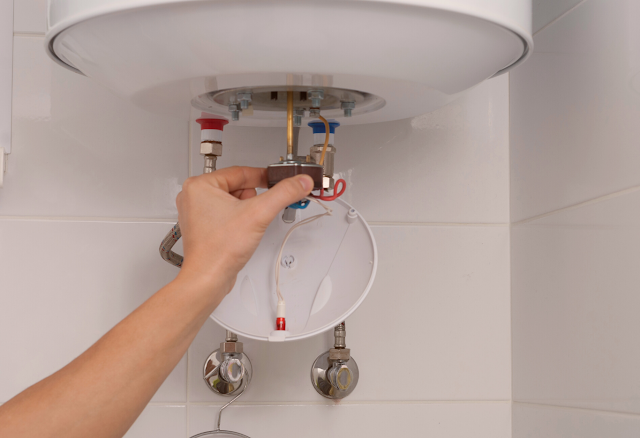Creating a comfortable indoor environment is essential for every home, especially during cooler or rainy seasons. An electric heater offers a convenient and efficient way to maintain warmth without complex installation or fuel storage. In residential spaces, different heating needs require different solutions. From compact bedrooms to spacious living rooms and bathrooms, selecting the right type of heater can improve comfort, energy efficiency, and safety. As a home utility solutions provider, we understand that modern households look for heating systems that are safe, energy-efficient, and easy to maintain. Let’s explore the common types of electric heaters used in residential spaces and how they serve different purposes. Understanding How Electric Heating Works Electric heating systems convert electrical energy into heat. Unlike gas-based systems, they do not rely on combustion, making them cleaner for indoor use. Many modern units come with: Adjustable thermostats Overheat pr...
A tankless water heater is one of the most recent techniques for making home energy more efficient. Tankless heaters use powerful gas burners or electric coils to heat water rapidly, unlike typical systems that continuously heat and reheat it to keep it hot. Tankless systems use less energy overall since the water does not need to be repeatedly reheated, as it would in a traditional tank model, despite this, quick heating takes more power. With several advantages over conventional tank-style water heaters, a tankless water heater sometimes referred to as an on-demand or instant water heater can be an excellent long-term investment.
Here you can see all the Pros and Cons of tankless water heaters:
Pros:
Long-lasting
They usually have a lengthy life expectancy and typically have very affordable operating expenses because of their sturdy design and construction. Additionally, as most models include replaceable parts, the environment is not negatively affected over the long run.
Endless hot water
A tankless home water heater can continuously supply hot water as long as there is fuel or energy to heat it, unlike storage tanks, which are constrained by the tank size, as you are rudely reminded early in the morning when all your kid's shower before you do.
Low month-month cost
These solutions cost more, but they are also more effective. According to Consumer Reports, tankless water heaters are 22% more efficient than conventional versions. Although the monthly savings might be small, homeowners can anticipate several hundred dollars in annual savings.
Prevent water damage
The basement or garage won't flood if the tankless waterheater rust, which will take much longer. Additionally, it won't cause water damage to your belongings that could cost you hundreds or even thousands of dollars. If you keep using the old water heater, you must follow some maintenance suggestions.
Saves space
Due to the high cost of real estate, many of you are choosing to downsize your living spaces, making a massive 40- or 60-gallon storage tank 5 feet tall and 2 feet wide less than practical. In contrast, a tankless water heater hangs up and out of the way on a wall, freeing up more usable area on the ground. Think of the additional space available in your cottage, bathroom, or basement.
Cons:
Inconsistent Temperatures
Inconsistent water temperatures are listed as one of the top customer complaints in the Consumer Reports poll that was previously stated. This problem usually arises from the heater's inability to deliver enough hot water to several outputs simultaneously. Also, tankless heaters may not always turn on, even if the faucet is slightly open.
Power outage
Because tankless waterheater, including gas models, depend on electricity to operate and regulate, your hot water will stop being warm if the power goes out. A tankless water heater might not be ideal if you live where power outages frequently occur.
Conclusion
As a result, the above details are about the all-Pros and Cons of tankless water heaters. If you want to use a tankless water heater, you need also think about whether to buy one or rent one. There are up-front costs associated with purchasing a water heater, but there are no leasing fees, and maintenance and repair costs fall under your responsibility.

Comments
Post a Comment